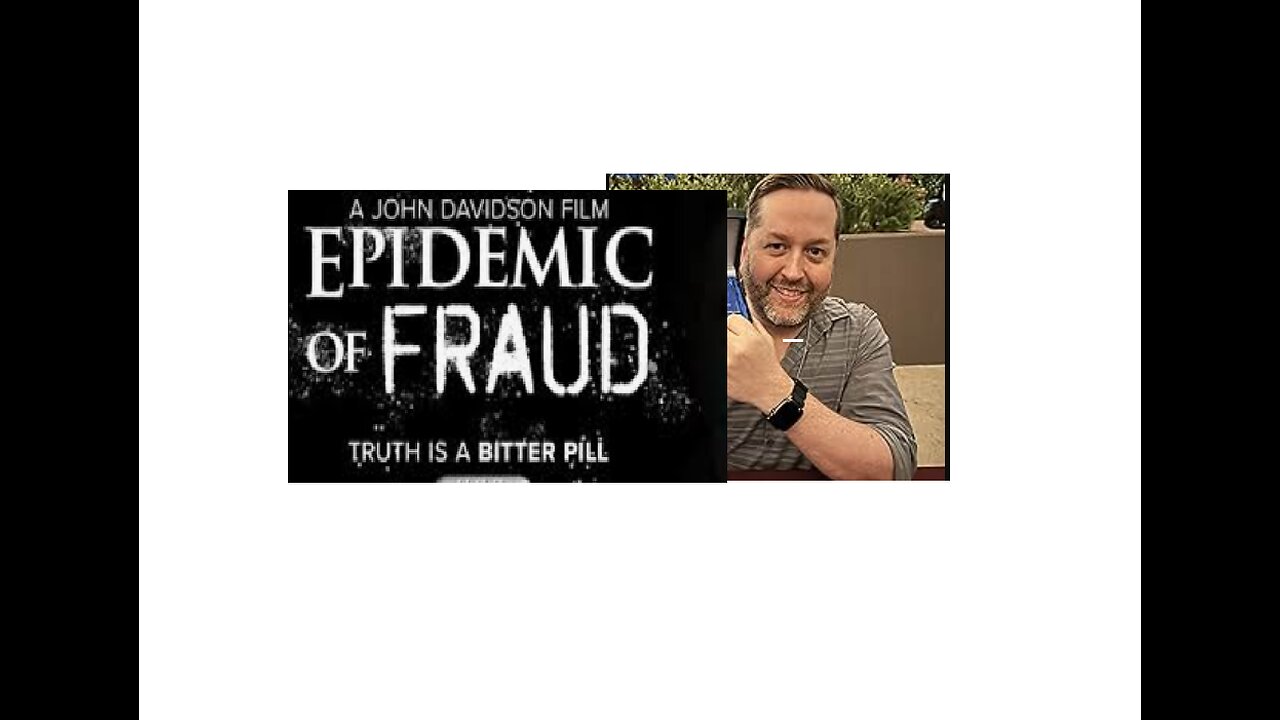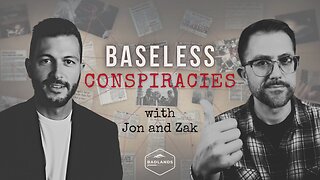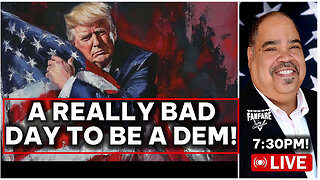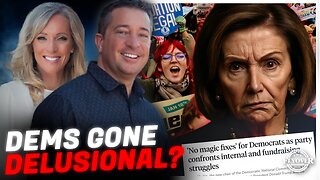Premium Only Content

John Davidson's Epidemic of Fraud: Unmasking COVID-19 Manipulations
The film Epidemic of Fraud by John Davidson exposes how media manipulation, government interference, and pharmaceutical companies influenced the public narrative during the COVID-19 pandemic. The documentary specifically focuses on the suppression of early treatments like hydroxychloroquine and ivermectin, which were either dismissed or attacked without scientific rationale. Davidson presents a compelling case that political motivations, particularly tied to Donald Trump’s endorsement of these treatments, caused the media and public health agencies to weaponize misinformation. The film uses a mix of interviews, footage from news broadcasts, and documented studies to build a narrative that points to regulatory capture — where agencies like the FDA and CDC have become enmeshed with the very industries they’re supposed to regulate.
Davidson’s journey into the "epidemic of fraud" began early in the COVID pandemic. While his Hollywood career had him focused on marketing, something about the lockdowns caught his attention. He saw the manipulation and censorship taking place and couldn’t remain silent. As he monitored the pandemic’s progression, he noticed a disturbing trend in the media and medical communities. “The news is wrong on almost everything. It's so consistent you almost think it has to be on purpose," Davidson remarked.
He began to investigate how drugs like hydroxychloroquine and ivermectin were being suppressed, not for scientific reasons but for political and financial gain. He knew that bringing attention to these truths would require more than subtle hints. “I realized I was going to have to really hit people over the head," he reflected, explaining the need for a more aggressive documentary approach.
Davidson noted how Trump’s endorsement of hydroxychloroquine became a death sentence for the drug. He wryly commented, “Donald Trump and hydroxychloroquine had an affair, and that was their baby.” This politicization of medicine, he argues, was part of a larger manipulation where public trust was eroded not by facts but by media narratives.
One of the core revelations of the interview is how intertwined the media, government, and pharmaceutical companies have become. “We have to discontinue pharmaceutical advertising on broadcast media. Maybe all pharma advertising completely,” Davidson proposed. He was convinced that this unholy alliance was clouding judgment at every level, from doctors to policymakers.
Davidson was clear that this wasn’t just about money. “You start lying, you’ve got to keep lying,” he said, suggesting that the media and pharma had dug themselves too deep to ever turn back. Regulatory capture, where government agencies serve the industries they're supposed to regulate, was another significant point he raised: “Regulatory capture is a system where government agencies are essentially controlled by the industries they are supposed to regulate.”
His documentary sought to bring all this to light, exposing how the same entities controlling the flow of information were often the same ones with financial stakes. As Davidson remarked, “I think the vaccine Ponzi scheme will end. The question is how and when and by which means.” By interweaving personal conviction with facts and compelling quotes, Davidson’s narrative serves as a call to restore honesty in medicine, something that feels increasingly rare today.
A particularly puzzling issue is how treatments like hydroxychloroquine, which are FDA-approved and have long-standing records of safety, were suddenly deemed dangerous. I stated, “Both these medications are FDA-approved... at baseline, they are determined to be safe enough.” It’s hard to see this as anything other than politically motivated. This ties back to the Right to Try legislation, which allowed terminal patients access to experimental treatments, yet when faced with COVID-19—a supposed global emergency—this option was shut down.
-
 13:09
13:09
Forrest Galante
1 day agoWildlife Expert Reacts To Deadly Australian Animal TikToks
72.5K13 -
 23:47
23:47
GritsGG
2 days agoThe Forgotten Best Sniper Support AR!
24.7K4 -
 10:18
10:18
The Pascal Show
16 hours ago'I WILL NOT GIVE UP ON MY BABY!' Emmanuel Haro's Mom Breaks Silence From Jail?!
1.63K -
 LIVE
LIVE
Lofi Girl
2 years agoSynthwave Radio 🌌 - beats to chill/game to
149 watching -
 2:33:04
2:33:04
Badlands Media
13 hours agoBaseless Conspiracies Ep. 147: Pole Shifts, Plasma Skies, and the Truth About Cataclysms
166K17 -
 4:33:42
4:33:42
Drew Hernandez
8 hours agoISRAEL BOMBS GAZA HOSPITAL ON LIVE TV KILLING AT LEAST 20 INCLUDING JOURNALISTS & CIVILIANS
20.8K42 -
 2:55:23
2:55:23
TimcastIRL
8 hours agoTrump Orders Specialized National Guard Units To Combat Crime In Cities, Dems Furious | Timcast IRL
205K143 -
 6:22:03
6:22:03
SpartakusLIVE
9 hours ago#1 Rocket CHAMPION of Verdansk wields UNSTOPPABLE new META
81.3K5 -
 2:55:11
2:55:11
Barry Cunningham
9 hours agoPRESIDENT TRUMP MADE TODAY A VERY BAD DAY TO BE A DEMOCRAT!
100K63 -
 1:15:29
1:15:29
Flyover Conservatives
1 day agoFrom Cool to Cringe: How Democrats Lost America’s Ear | FOC Show
48.1K14